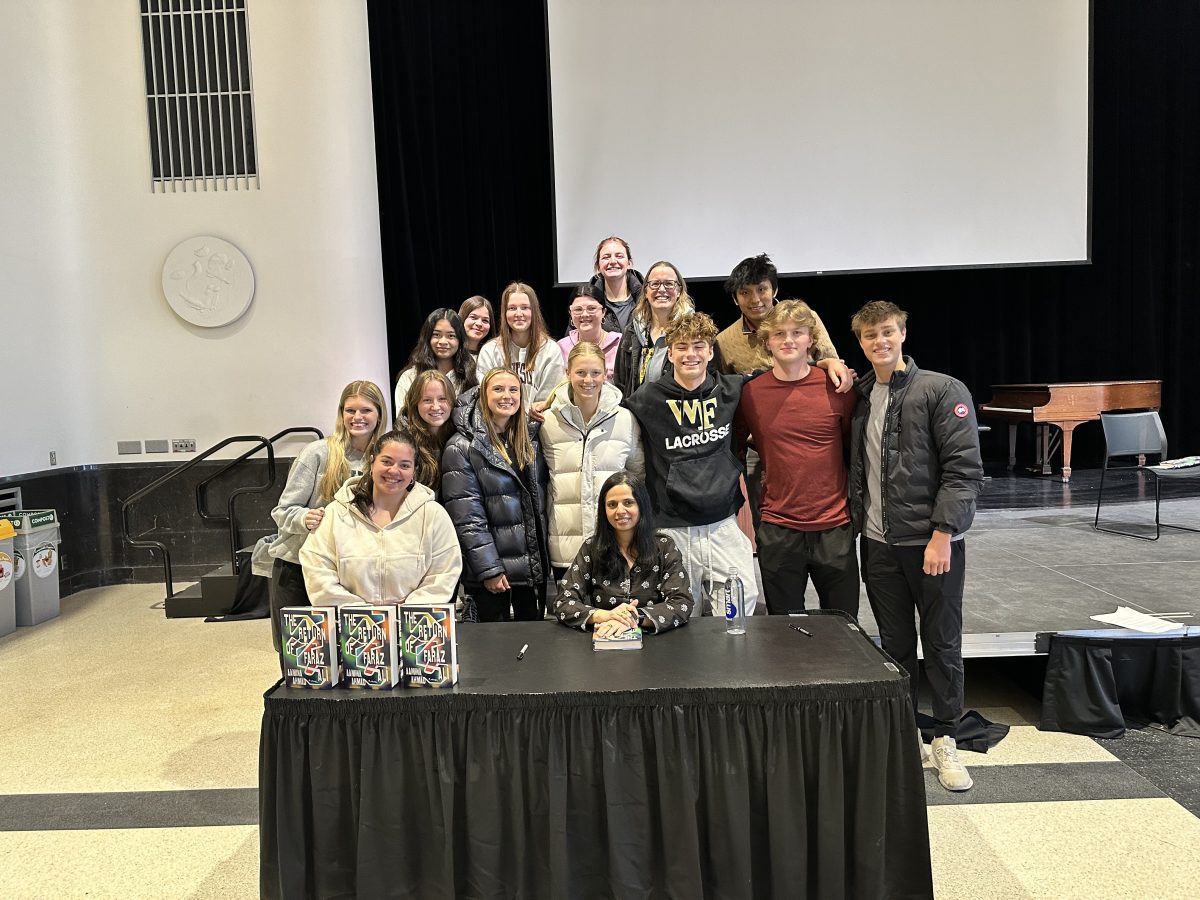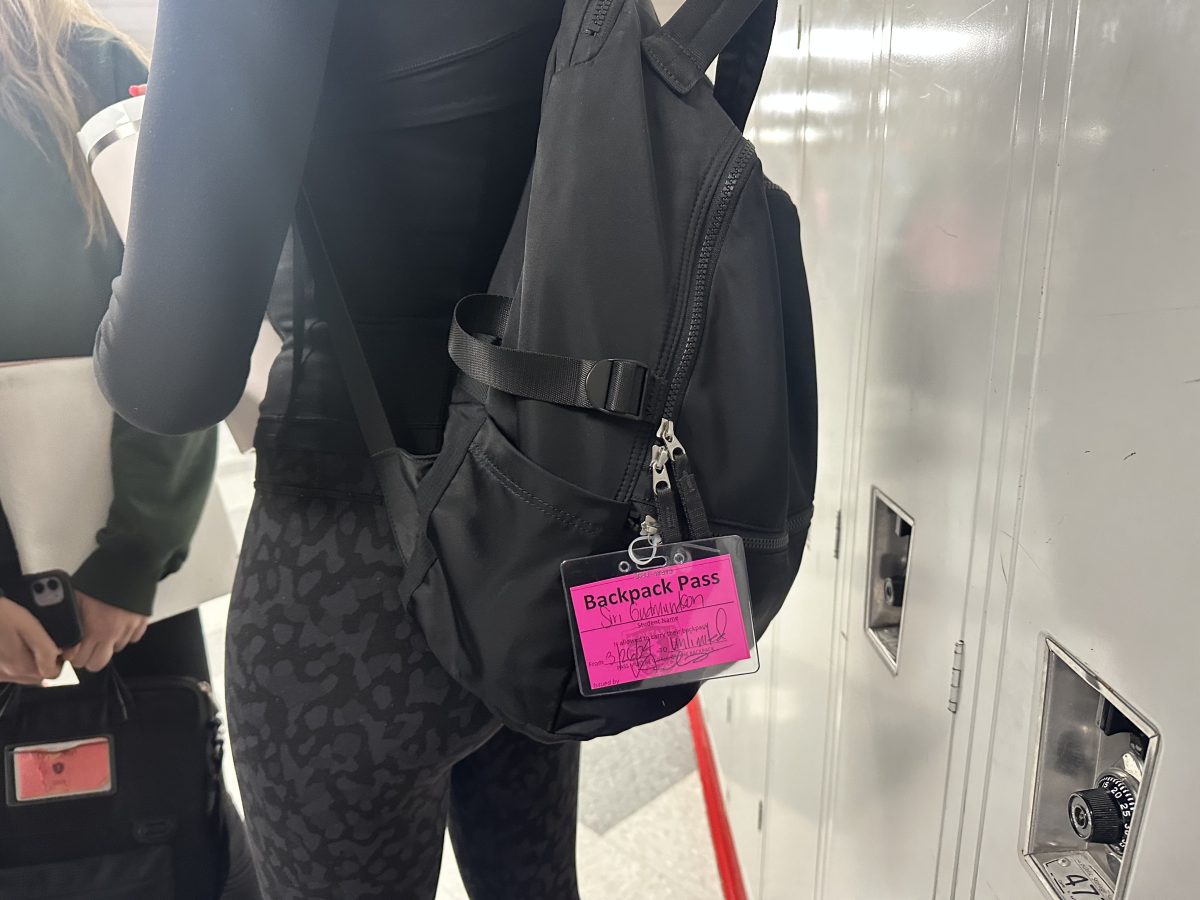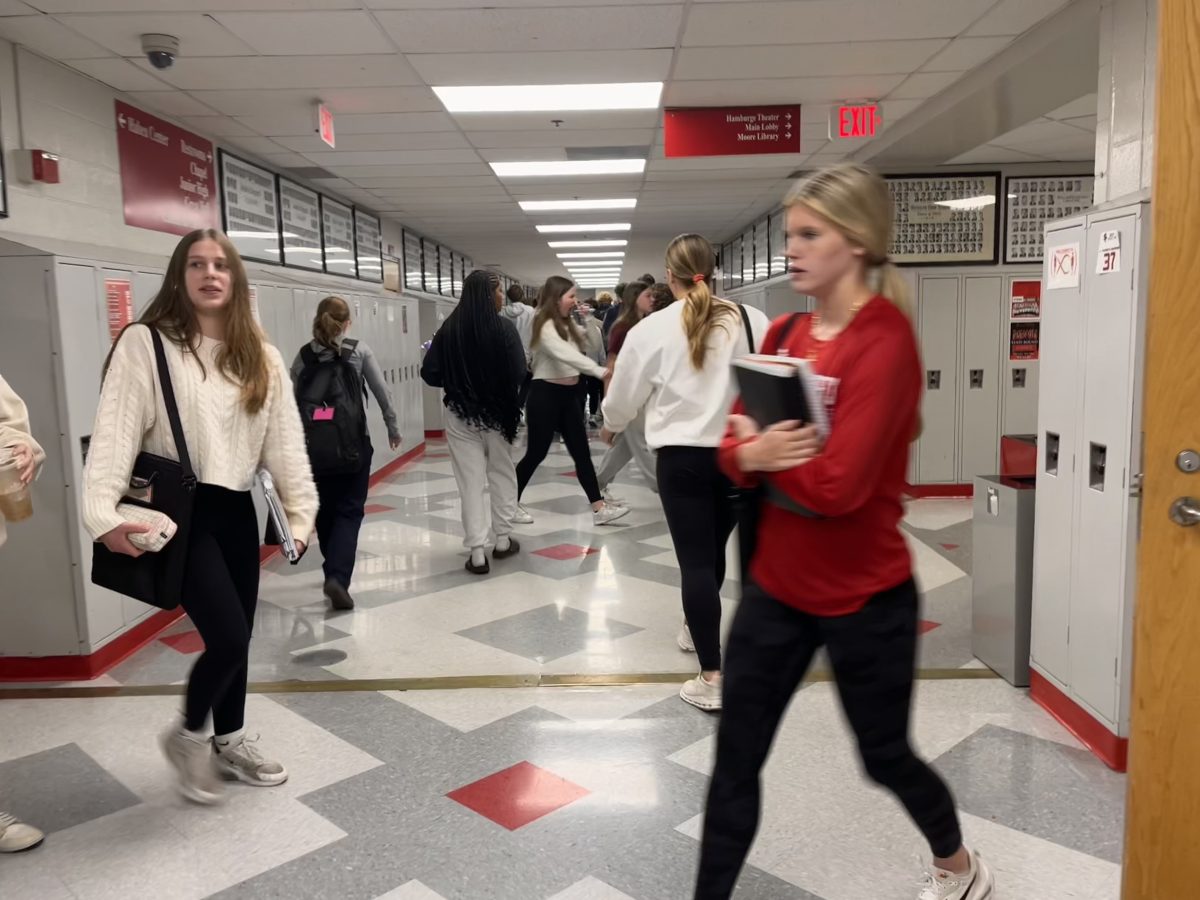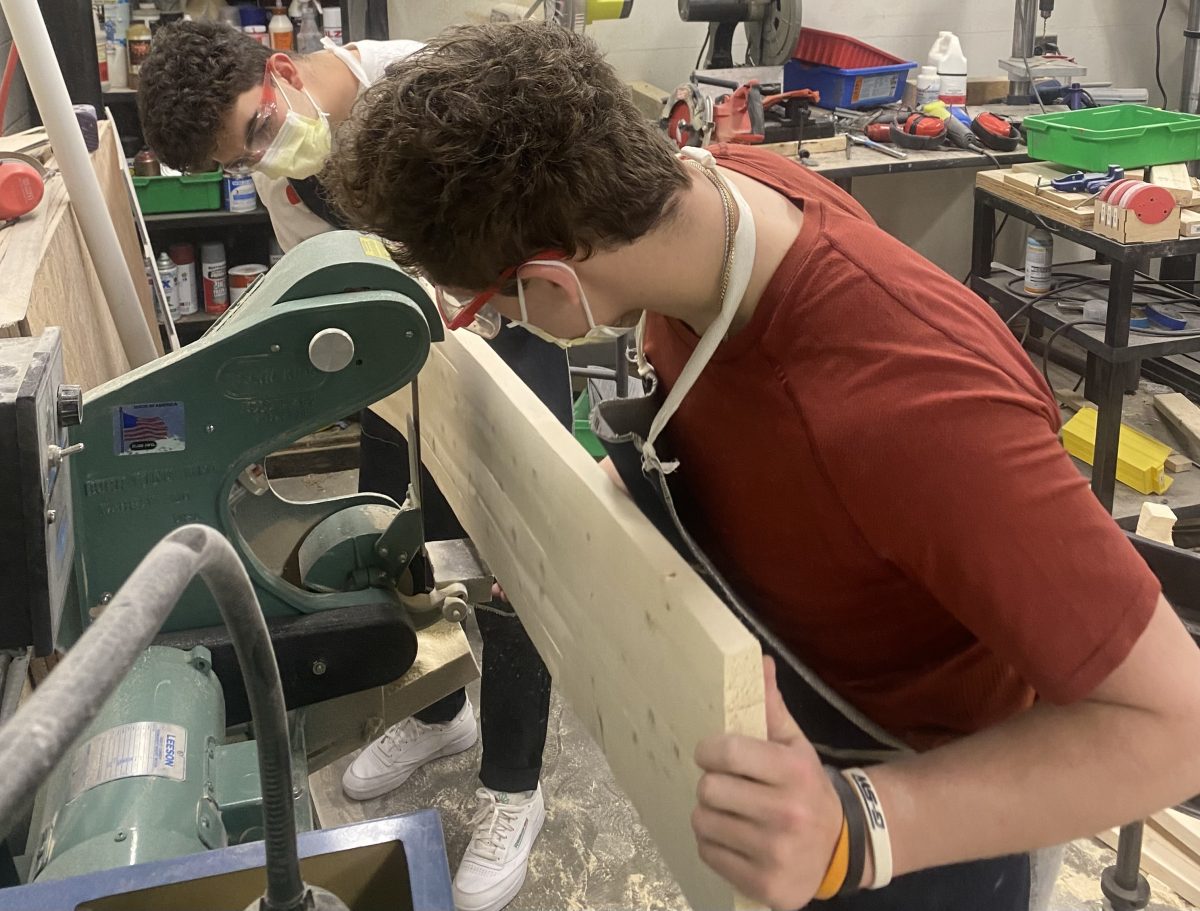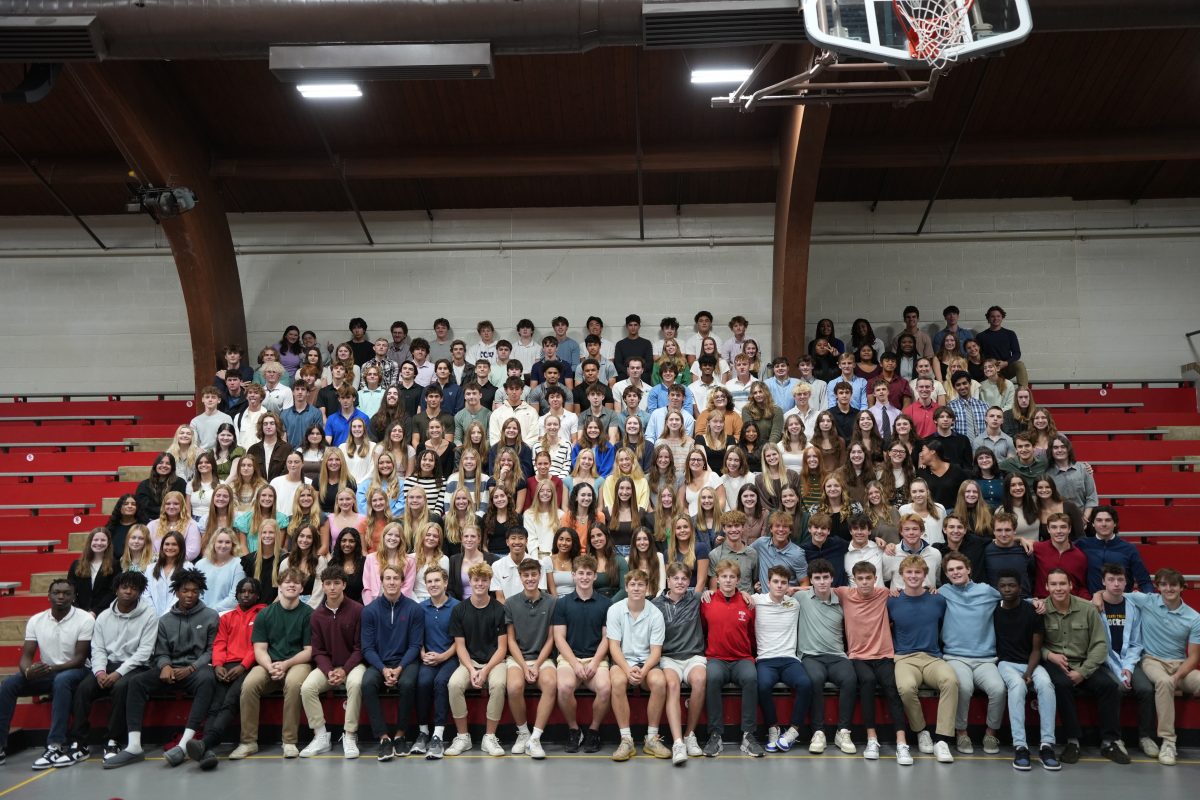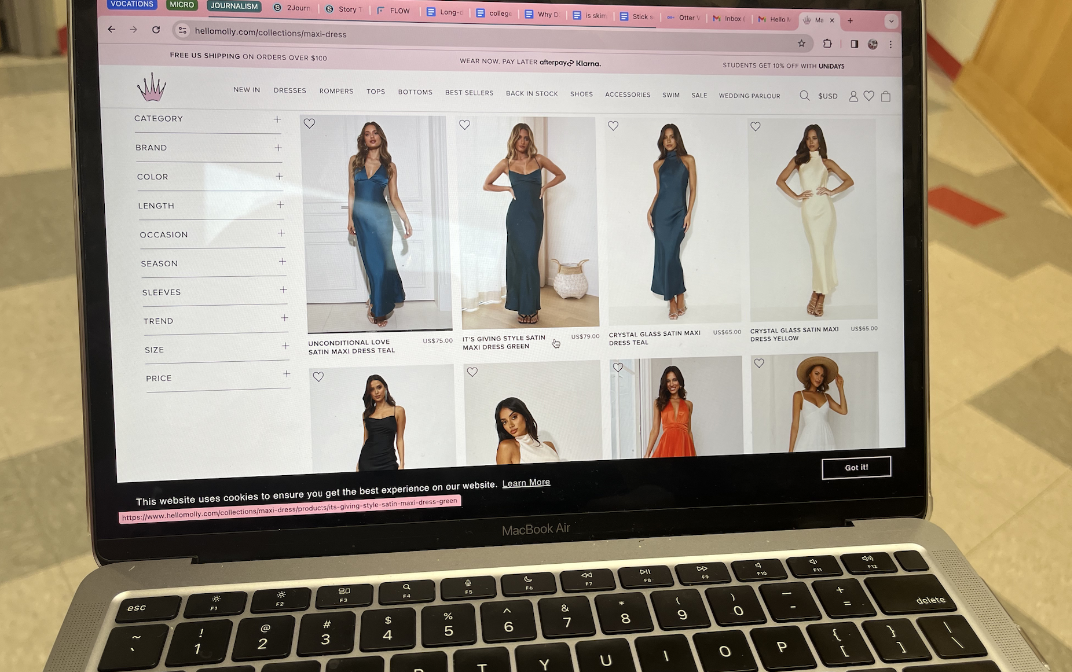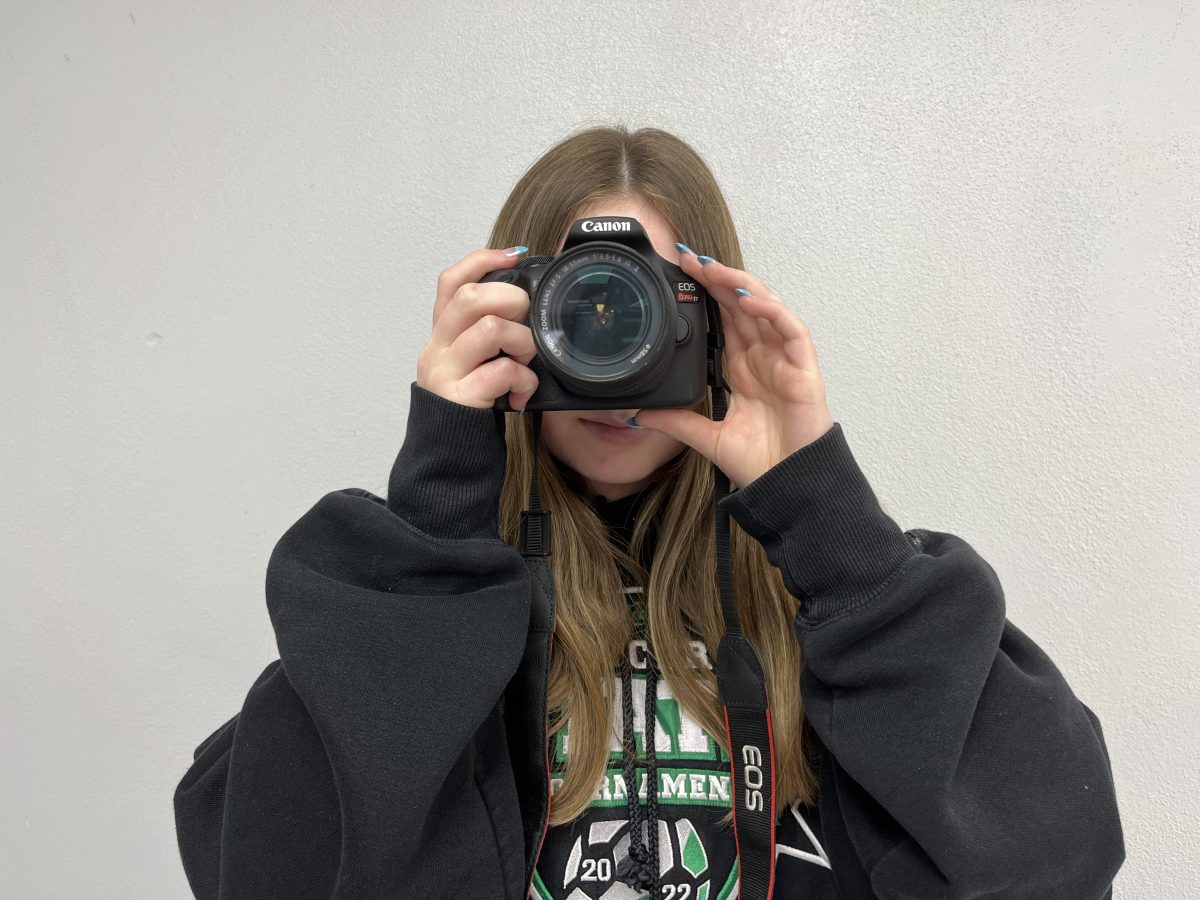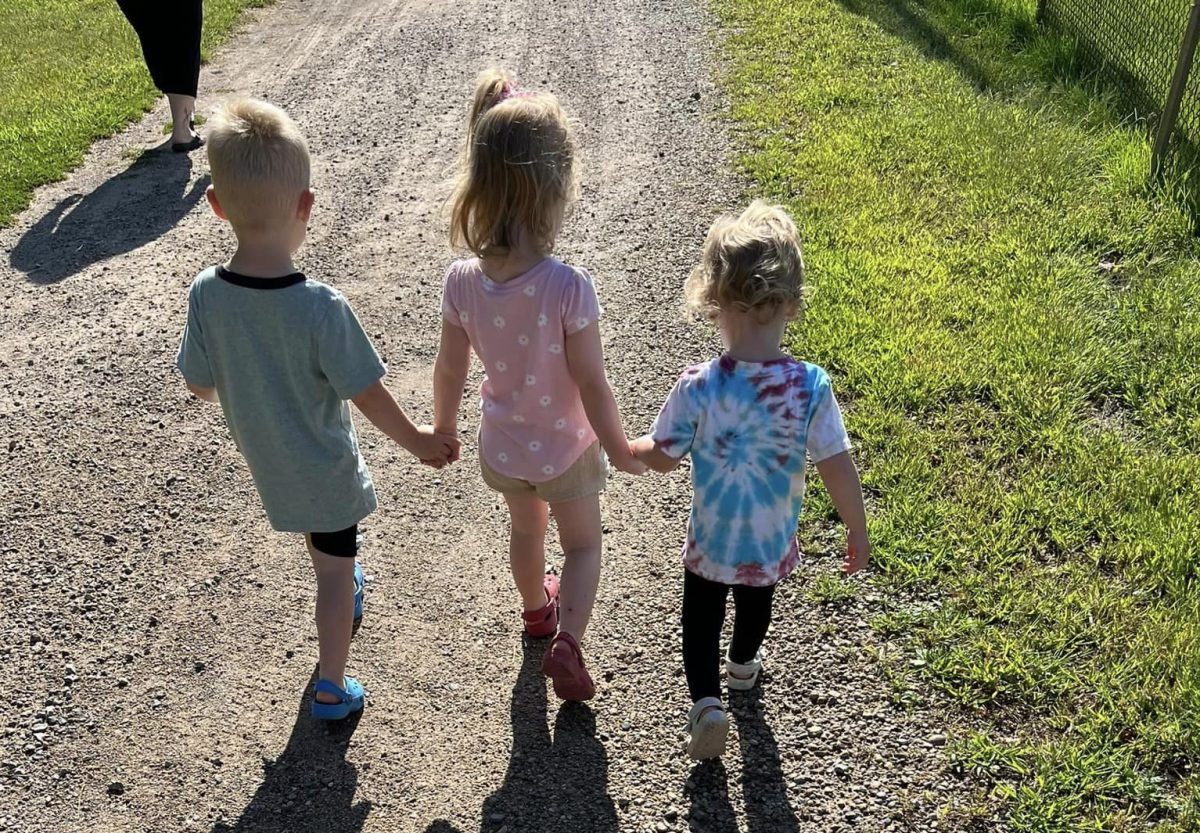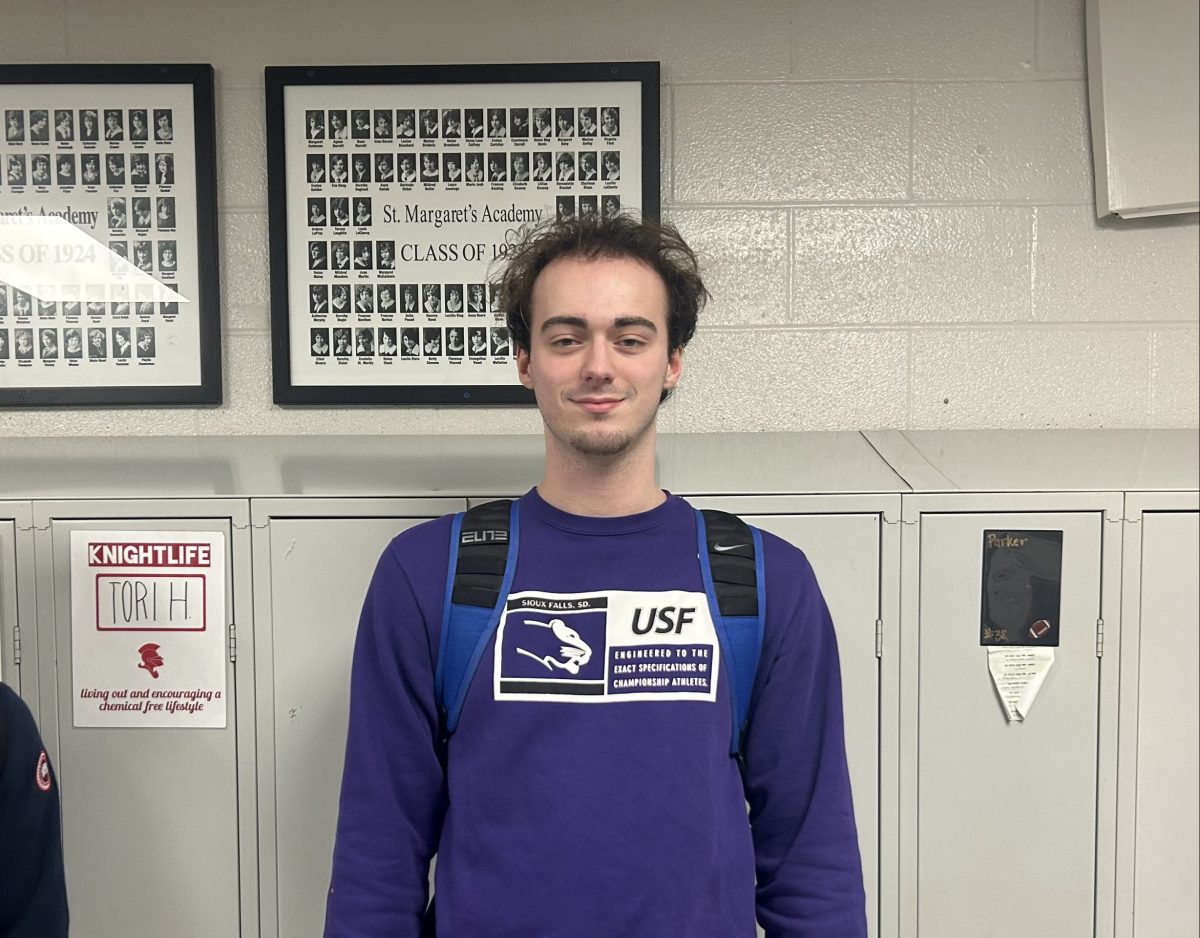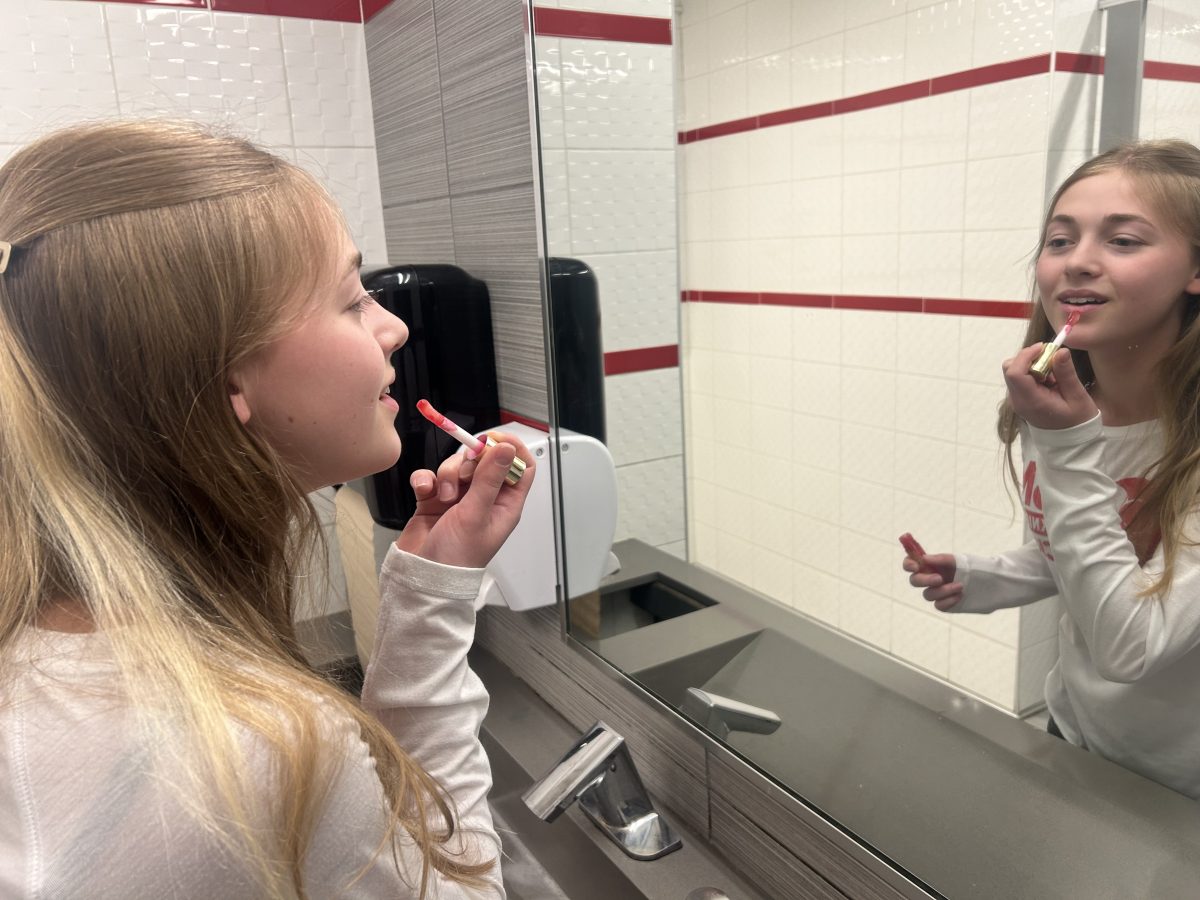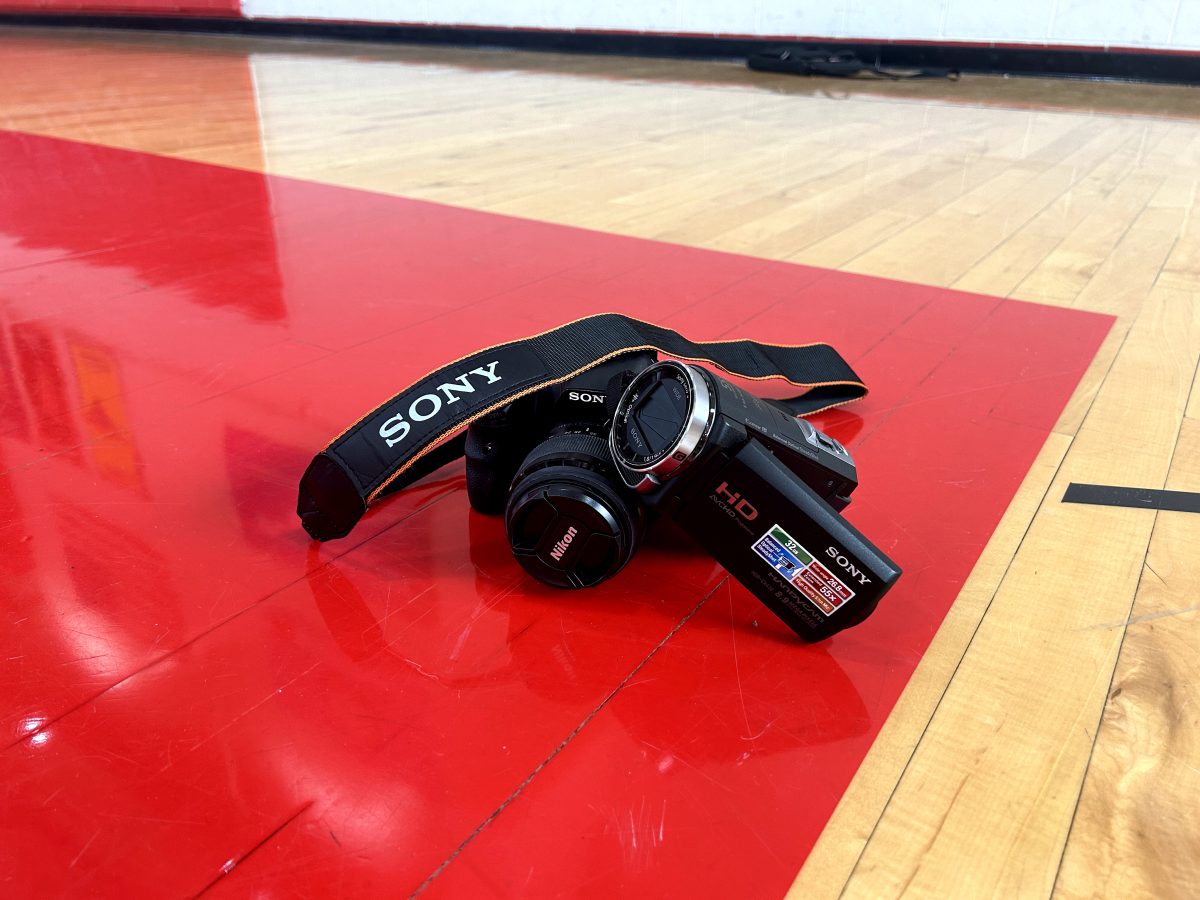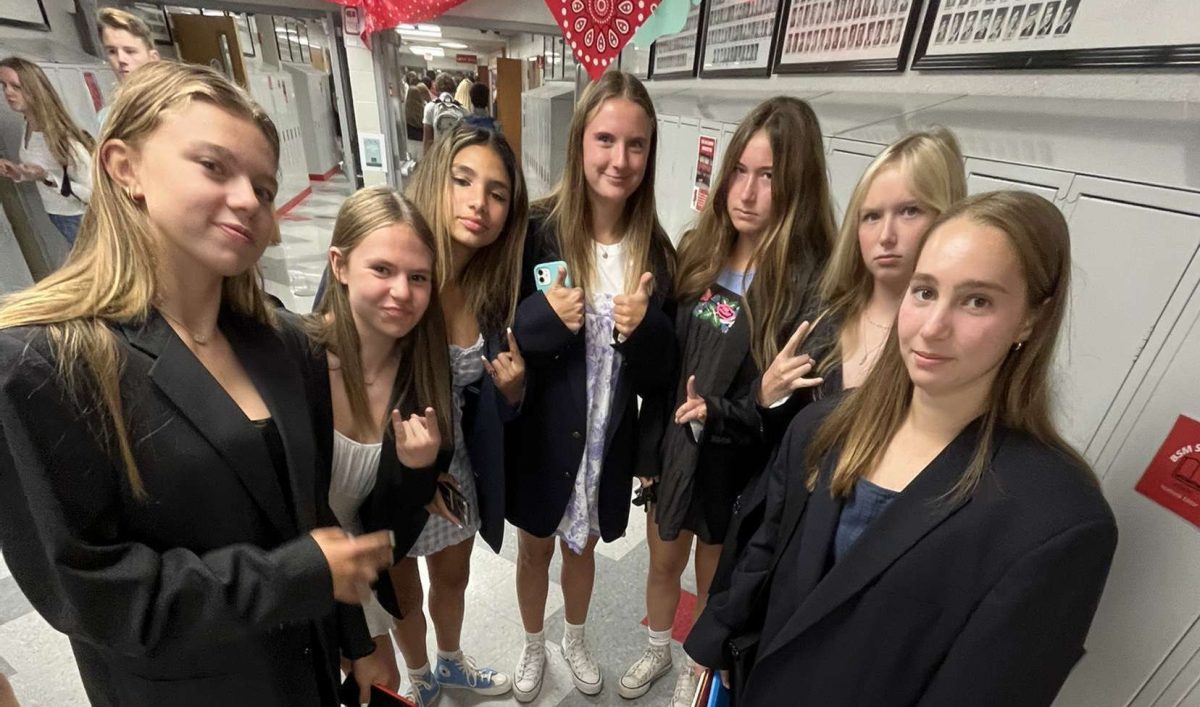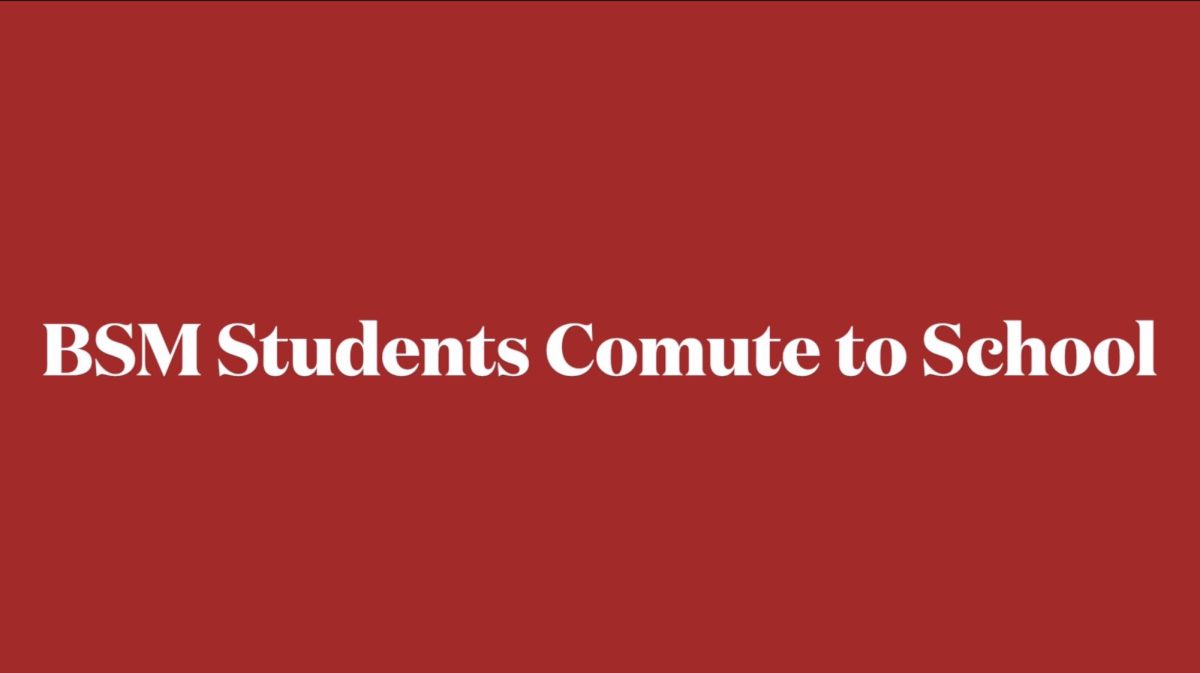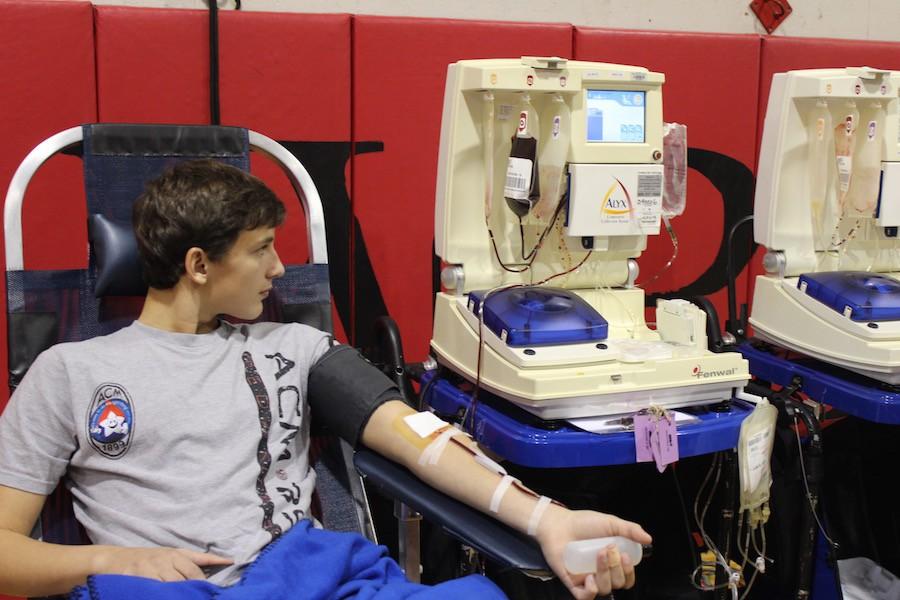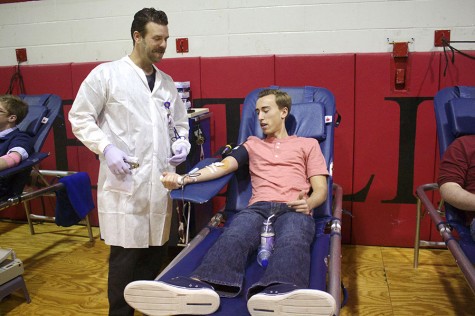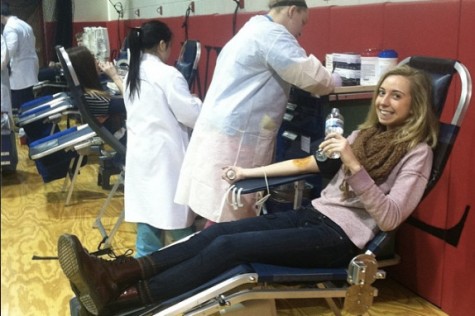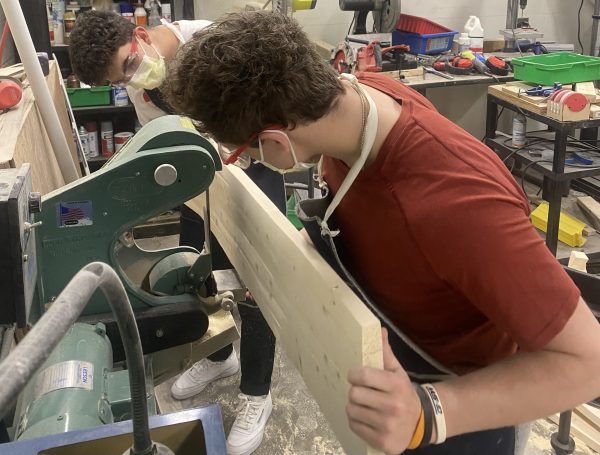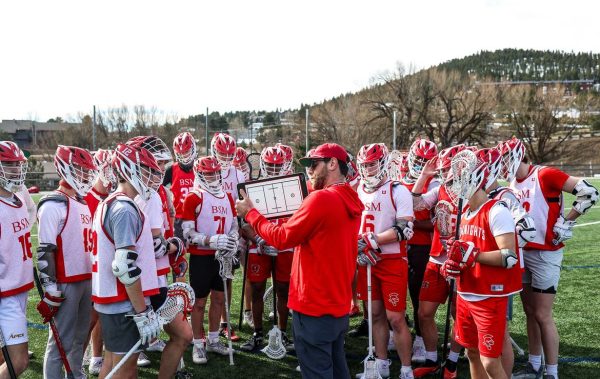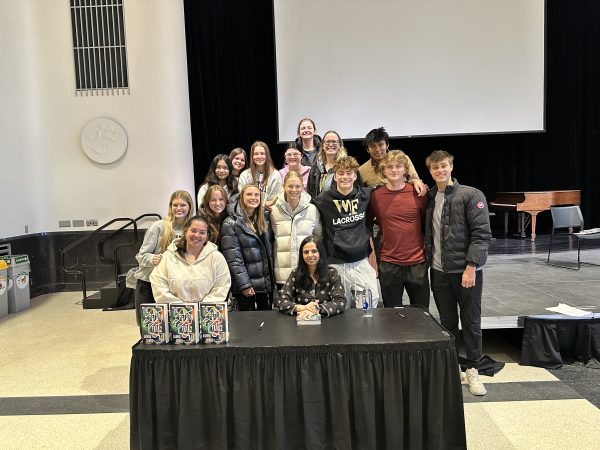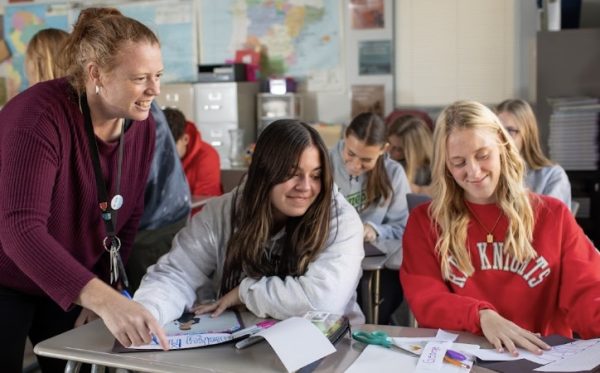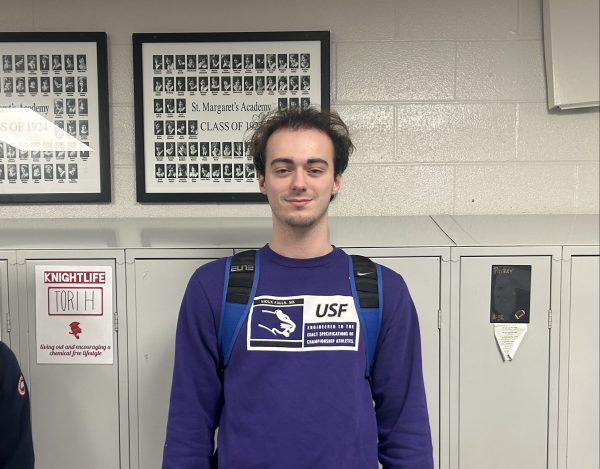Biannual blood drive organized by National Honor Society
National Honor Society coordinated the annual blood drive with the help of Memorial Blood Center.
The first of this year’s scheduled blood drives, which was coordinated by National Honor Society, NHS, was held in the Haben Center on November 11. NHS encouraged anyone who was able to donate. “Anybody who was 16 and older as of the day of the drive can donate,” NHS Adviser Rob Epler said.
The second blood drive will be during the week prior to spring break in March. “We used to do it after spring break, but we found that there are certain travel restrictions. [Traveling to] lots of places in Mexico, for example, make you ineligible, so we found that if we waited, it disqualified a lot of people from donating,” Epler said
The guidelines are simple, though there are some age, height, and weight requirements for donors. “If you’re 16, you have to have a parental consent form; if you’re 17, you don’t,” Epler said.
NHS has been hosting the blood drive at BSM for many years. “There was already a system in place when I got here, so I just adopted it, and I’ve never had any regrets. Memorial Blood Centers is a good organization to work with,” Epler said.
Something unique about Memorial Blood Centers is that they keep all their donated blood within Minnesota, so it gets used in only local hospitals, unlike American Red Cross, which is a nationwide organization.
In addition to the Memorial Blood Centers staff, BSM provided volunteers to help ensure the recruitment process and that the drive itself ran smoothly. “We have six blood drive chairs, three juniors and three seniors, and they were at the drive all day,” Epler said.
NHS blood drive chairs put a lot of effort into making the blood drive a success. “As a co-chair, I helped set up for it the day of, hung up all the posters saying ‘blood drive today,’ made sure people knew about it, especially if they were signed up to give blood because we didn’t want them to miss their slot,” senior blood drive chair Peter McCague said.
“We also had a few volunteers that sign up to work basically as gophers to do whatever needs to be done. If someone signed up to give blood but didn’t show up, we were able to find out where that kid was and had someone to go fetch them,” Epler said.
By far, one of the things that makes drives like this possible are the faculty, staff, and student support given to the drive. “We don’t have to work very hard at getting donors, and I think that is one of the benefits of having this as an established event. Students know we do blood drives here and know when they’re coming. We’ve kind of established it here as part of the BSM culture,” Epler said
“It helps a lot, too, that this culture extends to the faculty and staff. They are really supportive of this kind of thing, even though it impinges upon their classroom time. The administration has always been really supportive and that’s one of the reasons it ran so smoothly, because everyone was on board,” Epler said.
The students who organized the event and donated blood realized the importance of what they did to help others. “It’s crazy how important an hour of our life spent giving blood is; one little action can go such a long way,” McCague said.

